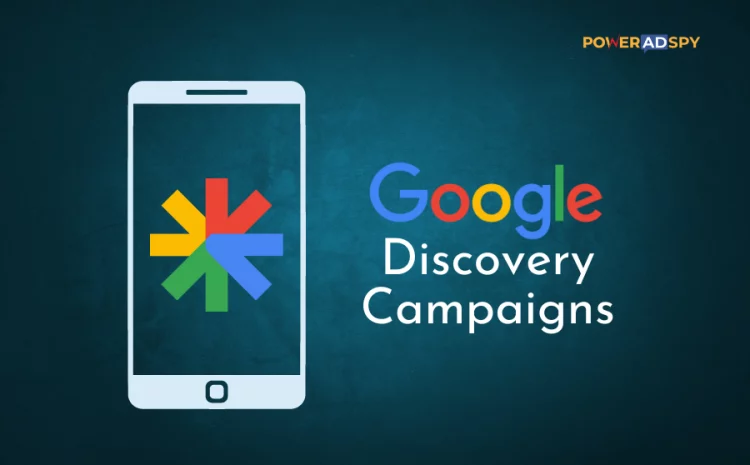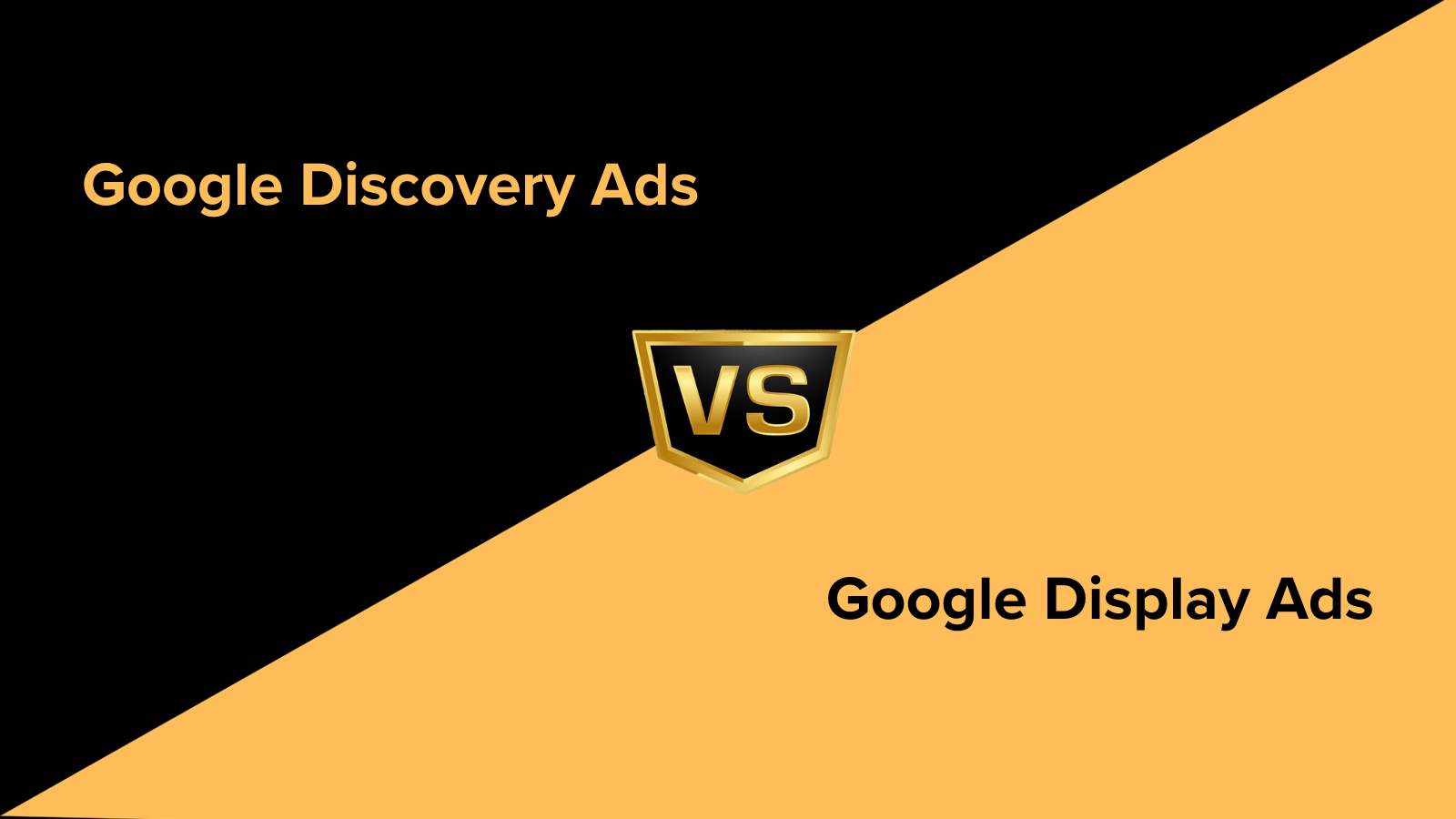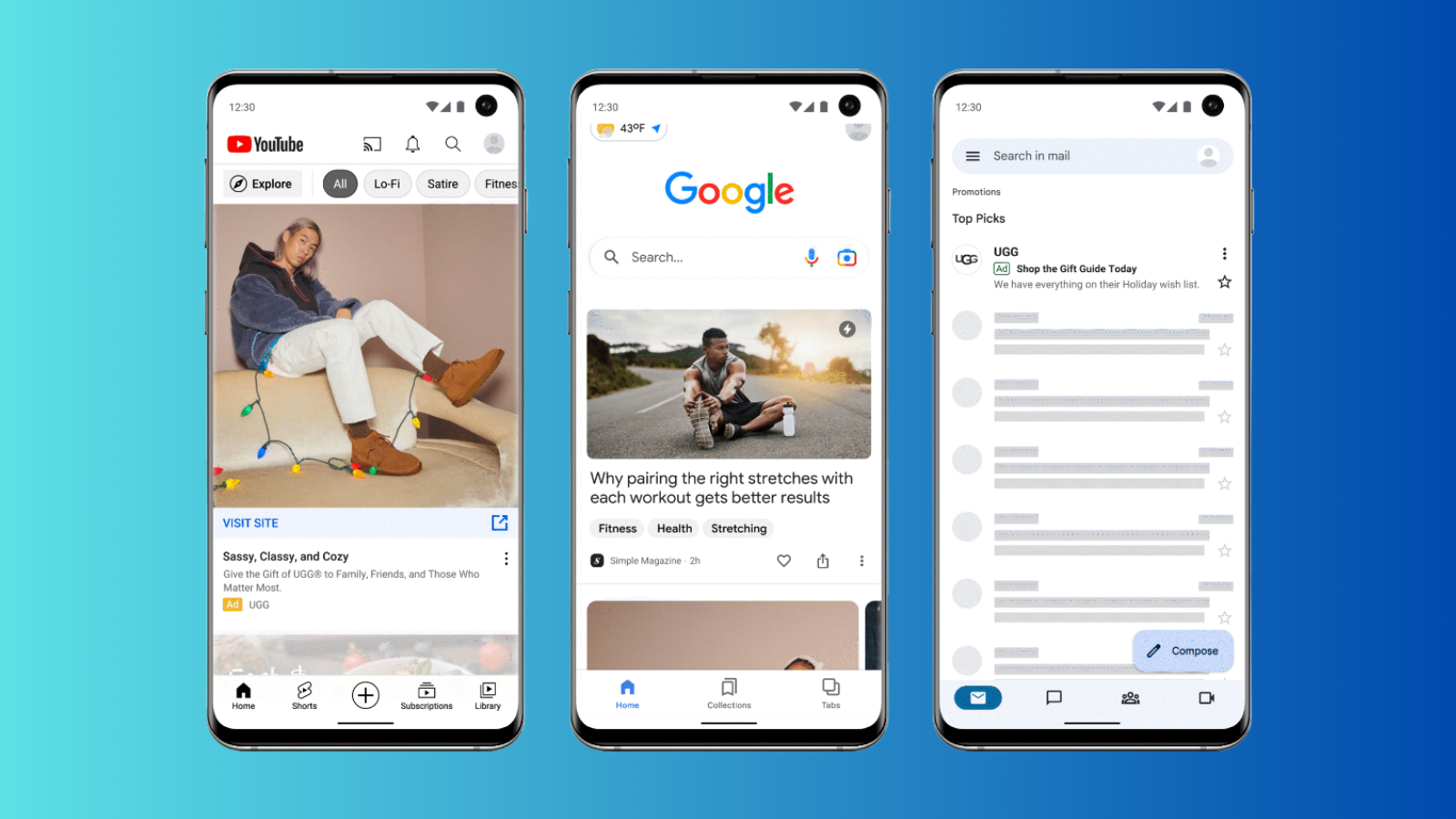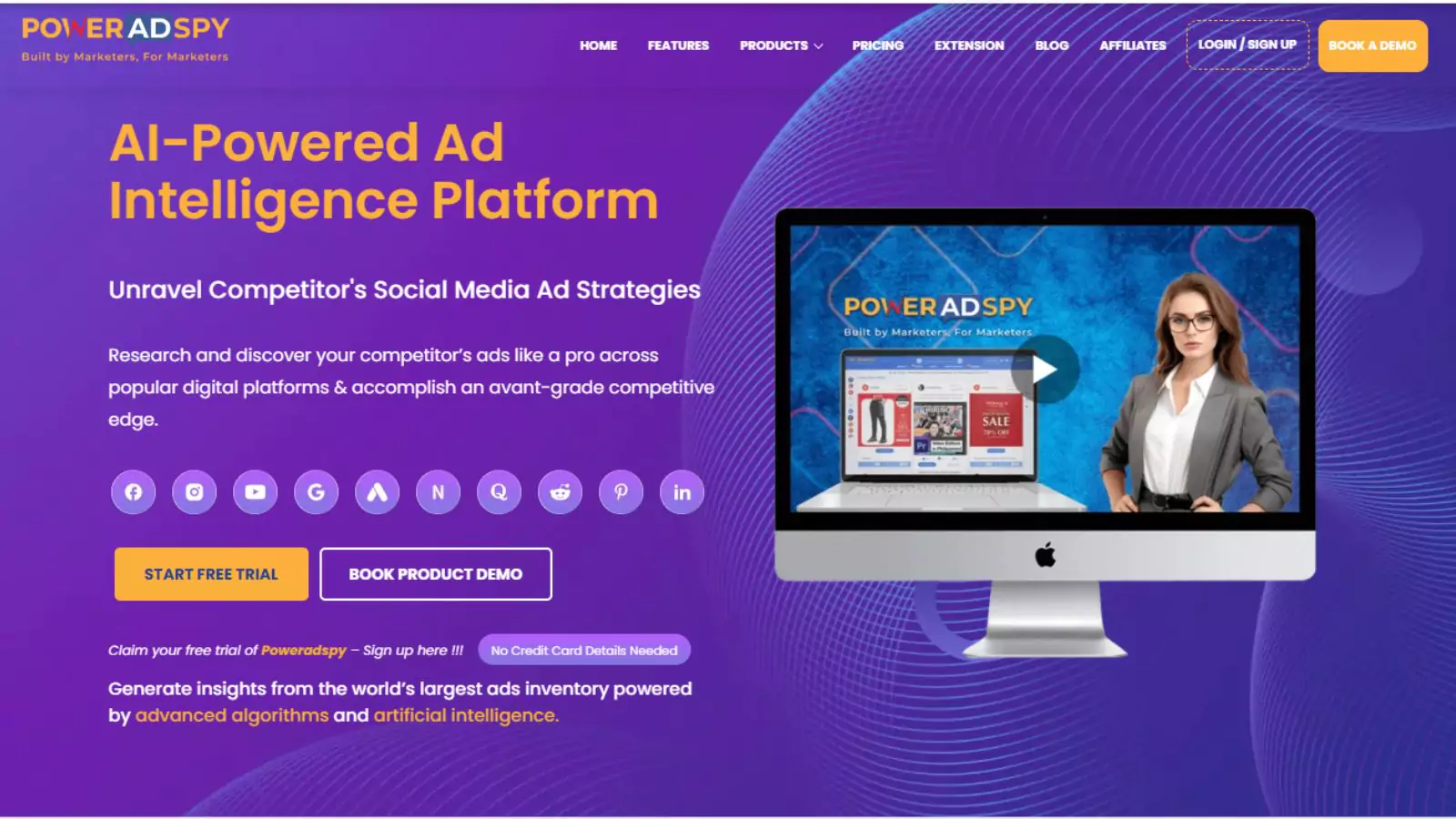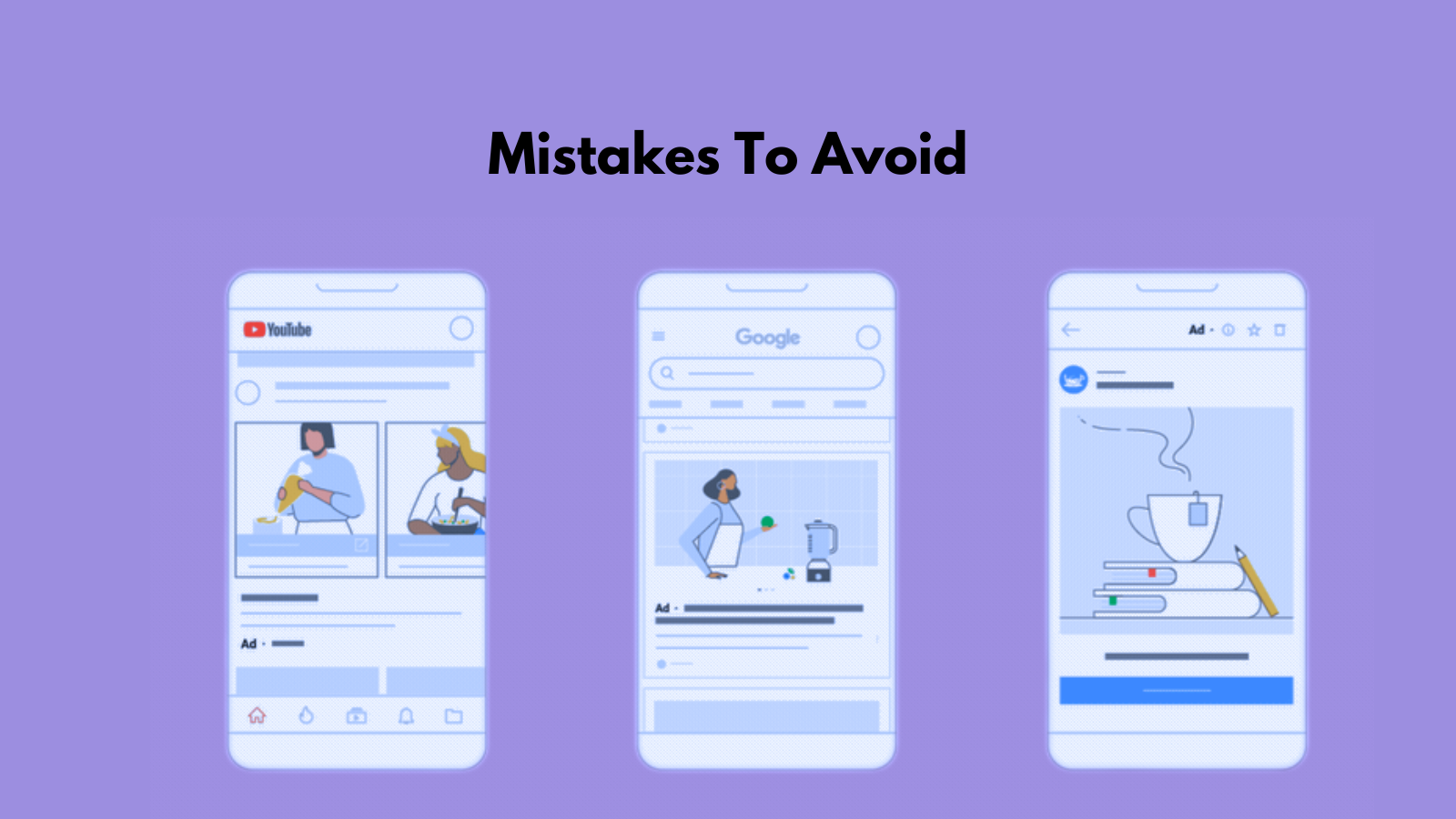Everything You Need To Know About Discovery Campaigns
Are you ready to unlock the full potential of Google Discovery Campaigns and revolutionize your marketing strategy? In today’s ever-evolving digital landscape, understanding the ins and outs of Discovery Campaigns is paramount for staying ahead of the curve. But where do you begin?
Join us on a journey of discovery as we delve into the fascinating world of Discovery Ads. What exactly are they, and how do they differ from traditional advertising approaches? As we explore the various types of Discovery Campaign ad formats, you’ll gain valuable insights into tailoring your campaigns to suit your audience’s preferences.
But that’s not all – we’ll also uncover the numerous benefits that Discovery Campaigns offer within Google Ads. To top it off, we’ll reveal how leveraging Google ad spy tools can further enhance the effectiveness of your campaigns, giving you a competitive edge in the digital marketplace. Get ready to revolutionize your marketing strategy – let’s dive in!
In a hurry? Listen to the blog instead!
What Are Google Ads Discovery Campaigns?
Google Ads Discovery Campaigns represent a strategic leap in advertising aimed at engaging diverse audiences across multiple Google platforms. Google’s advanced machine learning powers these campaigns, strategically positioning ads within tailored feeds such as Discover, YouTube’s home feed, and Gmail promotions.
Discovery Campaigns captivate with appealing visuals and compelling content, seizing user attention. They analyze behaviors, interactions, and preferences within Google’s ecosystem for precise targeting. This aligns ads with individual interests, deeply resonating with users during their browsing experiences.
Here, the role of the advertiser is also important, providing crucial assets such as headlines, images, descriptions, and logos. They can use Ad Analytics tools like PowerAdSpy to find more trending ideas, keywords, and creatives to create better ad campaigns.
Subsequently, Google’s sophisticated algorithms optimize the display of these assets across Google’s network, ensuring heightened visibility among potential customers more inclined to engage with the showcased products or services.
Discovery Ads vs Display Ads
Google Display Ads and Discovery Ads differ significantly. Google Discovery ads utilize AI algorithms, tailoring ad delivery based on user’s interests and behaviors, while Display Ads target users by demographics like location, age, and gender.
In the realm of Discovery campaigns, certain settings are beyond an advertiser’s control, as algorithms govern the entire process:
- Manual bid strategies
- Delivery method
- Device targeting
- Placement targeting (including exclusions)
- Frequency capping
- Ad rotation
- Contextual targeting
The Discovery algorithm determines optimal ad display times, aligning with users’ purchase tendencies. While this hands-off approach may offer less direct control, it streamlines processes, reducing complexity and enhancing campaign success chances. This comparison showcases how Discovery Ads’ AI-driven approach differs from the more demographic-based targeting of Display Ads.
Different Types Of Discovery Campaign Ad Formats
Google’s discovery campaigns are strategically displayed across diverse platforms within the Google ecosystem, expanding your potential reach. Within Google Discovery Ads, there exist two primary ad format options:
Standard Discovery Ads: It comprises a single static image accompanied by a description and headline.
Discovery Carousel Ads: It features multiple images, each with its distinct headline and description, presented in a carousel format for users to scroll through.
For both types of ads, uploading multiple headlines, descriptions, and images is essential. Google utilizes this content interchangeably, employing AI to determine the most engaging and converting content combination for the audience.
Additionally, various styles of Google Discovery Ads exist, tailored for platforms like YouTube, Gmail, and Google Discover.
YouTube:
Discovery ads on YouTube appear in various locations: the “Watch Next” suggestions and the Home feed. They consist of thumbnail images with engaging headlines, concise descriptions, business names, and logos. You can spot them at the top or between related videos designed to grab your attention. Within the YouTube app’s Home feed, they position themselves at the top or between videos to capture your interest.
Gmail:
Discovery ads can also surface within the Gmail app, strategically positioned under the “Social” tab in the Gmail feed. When users scroll through their inbox, they’ll notice “Ad” icons in green alongside the subject lines, offering a link to the associated landing page upon clicking.
Google App and Discover Feed:
Users engaging with the Google app or mobile devices encounter Display ads on the homepage and the “Discover” feed. The ads within the Discover feed cater to individuals’ interests.
YouTube ads engage users seeking informational content, while Gmail ads boost brand awareness and clicks. Ads in Google Discover’s feed and app amplify brand recognition and extend reach.
What Are The Benefits Of Discovery Campaigns In Google Ads
The benefits of Discovery Ad campaigns are as follows:
Expanded Reach:
Unleash the potential to reach up to 3 billion customers across Google’s diverse feeds. With Discovery Campaigns, advertisers can connect with a vast audience, spanning multiple Google platforms, using a single ad campaign. This streamlined approach aligns seamlessly with their performance goals in Google Ads, ensuring an efficient and far-reaching promotional strategy.
AI-Driven Optimization:
Harness the power of Google’s sophisticated algorithms, meticulously designed to optimize ad delivery. These AI-driven mechanisms strategically position ads precisely when users are most inclined to engage or take action. Such precision ensures maximal impact and effectiveness in achieving campaign objectives.
Engaging Ad Formats:
Visually rich ads, seamlessly rendered across Google’s diverse properties at scale, are strategically designed for discovery. These engaging ad formats leverage Google’s AI to create and display content seamlessly across devices. In the context of Discovery Campaigns, these ad layouts efficiently spark customer interest and prompt action, reducing the effort and time required for an impactful advertising experience.
Personalized Targeting:
Utilize personalized targeting capabilities to specifically target users based on their unique interests, behaviors, and online activities across Google’s multifaceted platforms. This tailored approach ensures that ads resonate deeply with the intended audience, significantly enhancing their relevance and impact.
Streamlined Campaign Management:
With Discovery Campaigns, advertisers can focus on crafting compelling content rather than wrestling with intricate settings, streamlining campaign management for a more seamless experience.
Increased Engagement:
Effortlessly weave ads into users’ content discovery experiences, creating a seamless integration that fosters robust connections and interactions. This approach not only propels heightened engagement but also cultivates a more immersive and impactful user experience throughout the content exploration journey.
Enhanced Performance:
With Discover Campaign, you can anticipate amplified campaign performance and increased conversions through precisely targeted ad delivery, closely aligning with advertisers’ performance objectives.
Automated Bidding Strategies
Discovery campaigns utilize smart bidding strategies such as Maximize Conversions and Target Cost-Per-Action (CPA).
If you have a specific average cost for each action in mind, the target CPA strategy is suitable. However, if maximizing conversions within your budget is your priority, regardless of a specific cost per action, then the Maximize Conversions strategy is the better choice.
How Can Ad Analysis Help In Google Discovery Campaigns?
Analyzing ad performance in Discovery campaigns can offer valuable insights and benefits:
Optimizing Creatives: By examining ad performance metrics like click-through rates (CTR) or conversion rates, you can identify which creatives resonate most with your audience. This insight helps in refining and optimizing future ad creatives for better engagement.
Audience Insights: Analysis reveals which audience segments respond best to your ads. Understanding these preferences enables you to tailor your targeting to reach the most receptive audience, enhancing campaign effectiveness.
Budget Allocation: By evaluating which ads generate the most conversions or engagement, you can allocate your budget more effectively. This ensures that the best-performing ads receive more investment, optimizing your return on ad spend (ROAS).
Refining Strategies: Analysis guides strategic decisions. Insights gained can help refine targeting parameters, adjust bidding strategies, or even explore new ad formats to improve overall campaign performance. Google ads spy tools like PowerAdSpy can provide detailed performance reports of the ads relevant to your niche, which can help you refine your ad strategies.
Continuous Improvement: Regular analysis allows for ongoing refinement. By monitoring and analyzing ad performance, you can continuously fine-tune your approach, leading to more successful Discovery campaigns.
PowerAdSpy: AI-Powered Ad Analytics Tool
PowerAdSpy is a robust ad analytics tool with a wide array of features. Here are the key features of PowerAdSpy that can assist in setting up Discovery campaigns:
Competitor Analysis: PowerAdSpy allows monitoring competitors’ ads, providing insights into the niche they’re targeting, the images used, keywords, and ad copy. This information helps in understanding successful strategies within the niche.
Ad Creative Inspiration: Access to a vast database of ad creatives across different industries and niches inspires the creation of compelling ad content and visuals for Discovery campaigns.
Targeting Insights: By analyzing competitors’ targeting methods, including demographics and interests, PowerAdSpy aids in refining audience targeting for better campaign performance.
Keyword Identification: Identifying high-performing keywords used in competitor ads assists in crafting relevant and impactful ad copy for Discovery campaigns.
Ad Performance Metrics: Tracking competitor ad performance metrics such as engagement rates and ad placements offers valuable benchmarks for campaign goals and strategy.
AI Ad Filtering: Utilize advanced AI ad filtering capabilities to streamline the search for ads relevant to your campaign objectives, saving time and enhancing precision.
500+ Million Ad Database: Access an extensive ad database with over 500 million ads, providing a wealth of information and insights for creating effective Discovery campaigns.
Save Lander Pages: Save and organize landing pages for future reference, streamlining the process of analyzing and implementing successful design and layout strategies.
Bookmark Favorite Ads: Bookmark and categorize favorite ads, allowing quick access to inspirational and successful ad examples for ongoing campaign optimization.
Read More
How To Overcome 6 Common Pitfalls In Curating Eye-Catchy Discovery Ads
YouTube Discovery Ads: What They Are & How To Use It
Master Google Discovery Ads with These 6 Simple Steps
Mistakes To Avoid With Discovery Campaigns
Avoiding pitfalls in Google Discovery ads campaigns is crucial for success. Here are some pitfalls to steer clear of:
Inadequate Targeting: Avoid broad targeting that doesn’t align with your audience. Overgeneralized targeting can lead to irrelevant ad displays and wasted ad spend.
Ignoring Creative Optimization: Neglecting to test and optimize ad creatives can hamper performance. Always test different visuals, headlines, and descriptions to discover what resonates best with your audience.
Lack of Ad Relevance: Ensure your ads align with users’ interests and intent. Irrelevant or misleading ads can result in poor engagement and ad disapproval.
Neglecting Landing Page Experience: If your landing page doesn’t match the ad’s promise or is slow to load, it can lead to high bounce rates. Ensure a seamless transition from the ad to the landing page with relevant content.
Disregarding Performance Analysis: Failure to regularly monitor and analyze campaign performance can result in missed optimization opportunities. Continuous analysis helps in adjusting strategies for better results.
Ignoring Competitor Analysis: Failing to keep an eye on competitors’ strategies can limit your campaign’s effectiveness. Understanding competitor tactics can provide valuable insights for your campaigns.
Inconsistent Testing: Inconsistent or inadequate A/B testing can prevent the discovery of optimal strategies. Regular testing is essential for continuous improvement and better performance.
By avoiding these pitfalls and implementing proactive strategies, advertisers can enhance the effectiveness of their Google Ads Discovery campaigns and achieve better results.
Final Thoughts
Google Discovery Campaigns stand at the forefront of modern marketing, offering a dynamic platform for advertisers to connect with audiences across Google’s vast ecosystem.
By harnessing the capabilities of Google’s sophisticated algorithms, personalized targeting, and engaging ad formats, discover campaigns help advertisers connect with diverse audiences, drive engagement, and achieve their campaign objectives precisely. Furthermore, through meticulous analysis, continuous optimization, and the help of powerful tools like PowerAdSpy, advertisers can navigate the complexities of campaigns.
By avoiding common pitfalls and embracing best practices, brands can harness the transformative power of Google Discovery Campaigns to propel their marketing efforts to new heights in the ever-evolving digital landscape.

